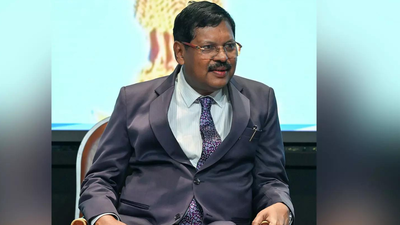ARTICLE AD BOX

CJI BR Gavai (File photo)
CJI on '79 rape ruling: 'Moment of institutional embarrassment'NEW DELHI: Admitting that Supreme Court failed its citizens, and it is the vigilance of civil society and courage of ordinary people which have kept the judiciary accountable over the years, the CJI termed SC's 1979 verdict as a "moment of institutional embarrassment" which acquitted two policemen accused of raping a young tribal girl inside a police station by taking her "consent" as voluntary because there were no visible marks of physical resistance. Delivering the 30th Justice Sunanda Bhandare Memorial Lecture, CJI B R Gavai said the apex court's verdict in Tukaram v. State of Maharashtra, also known as the Mathura case, was an institutional failure, and court's verdict reflected a deeply regressive and patriarchal understanding of consent, effectively denying the social context of power, coercion, and vulnerability in which sexual violence often occurs. "In my view, this decision remains one of the most troubling moments in India's constitutional and judicial history, and I call it a 'moment of institutional embarrassment', where the legal system failed to protect the dignity of the very person it was meant to safeguard. Yet, this judgment also became a turning point. The public outrage and the nationwide protests that followed, led by women's groups, students, and legal activists, ignited the modern Indian women's rights movement.
It compelled the nation to confront the inadequacies of its criminal law and catalysed the amendments in criminal law, which redefined the concept of consent and strengthened legal protections against custodial rape," CJI Gavai said. The CJI was speaking on the evolution of law in building a gender equal and inclusive India. He said many pathbreaking laws were passed to bring gender justice, and courts also pitched in to ensure equality through judicial pronouncements, barring few exceptions like the 1979 verdict.
He said it resulted in dismantling of the structural inequalities embedded in family and custom, bringing women from the margins of dependency to the centre of constitutional citizenship. "Over the past 75 years, India has charted an extraordinary journey in advancing the rights of women and shaping the vision of an inclusive society. From the early struggles for recognition and equality, to the present era of intersectional and participatory justice, the courts have often stood as guardians of equality and human dignity.
This evolution has not been without its challenges. There have been moments when judicial interpretations failed to capture the lived realities of women or fell short of the transformative spirit of the Constitution.
.. However, the vigilance of civil society, the persistence of women's movements, and the courage of ordinary citizens have together kept the judiciary accountable to the constitutional promise of equality," he said. "Therefore, it is important to acknowledge that progress in gender justice has never been the achievement of courts alone. The collective voice of citizens has ensured that regressive precedents were questioned, debated, and ultimately corrected through reform, reinterpretation, or legislative intervention. The dialogue between the courts and the people thus remains one of the most vital sources of India's democratic strength, reminding us that the march toward gender equality is not a destination reached, but a commitment constantly renewed," CJI Gavai said.

 1 hour ago
5
1 hour ago
5








 English (US) ·
English (US) ·